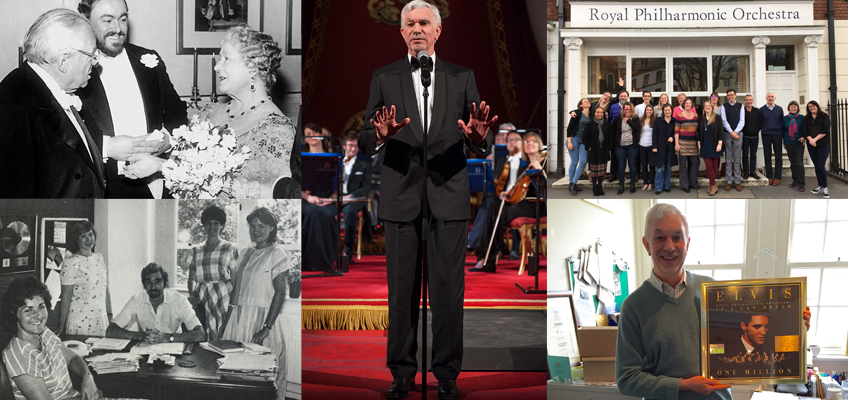In a phone interview with Hannah Nepil, prior to his retirement last month, Ian Maclay reflects on his many decades of dedication and hard work as Managing Director of the Royal Philharmonic Orchestra.
He first arrived in 1972, when the Royal Philharmonic Orchestra was only twenty-five years old, and there was no shame in having excessive facial hair. Now, in the ensemble’s 70th Anniversary Year, Ian Maclay is retiring as its Managing Director. How does he feel? ‘It will be like cutting off my right arm,’ he says, ‘but it was always going to be difficult. And I wanted to go before the players were muttering in corners, and saying “Oh blimey, will he never go?”’ He laughs, ‘or perhaps they already are.’
That kind of self-deprecation is typical of Maclay, who, when I call, insists that regurgitating his CV would be ‘boring and turgid.’ But it is worth pointing out that when Maclay took on the MD job in 1982, the Orchestra, in his words, ‘was on the verge of bankruptcy.’ By 1985, things had completely turned around, thanks largely to the album initiative Hooked on Classics. ‘We did just one session recording a medley of orchestral tracks with a disco beat. It went to number one in the charts, the Orchestra was on Top of the Pops and we sold eleven-million copies,’ Maclay reminisces. But it was what happened next that made the biggest difference. ‘In those days the Orchestra got no royalties, and so I went to negotiate some,’ he says, going on to describe how, on arrival, he was met with a stream of expletives. ‘But after about an hour of negotiating with this guy, he threw a cheque across the table: it was for half a million quid.’
For Ian Maclay, events like these rank among his proudest achievements: ‘The RPO is funded much less than other orchestras in the UK, so it can be a bit of an uphill struggle. But if I had a legacy, I hope it would have been to strike a balance between the commercial and the artistic.’

And he has overseen some huge artistic ventures, not least the Orchestra’s gala concert with Luciano Pavarotti. ‘It was the first time I witnessed the huge hysteria for Pavarotti. The Queen Mum turned up. Audiences were on their feet. People had paid a fortune for the front dozen rows at the Albert Hall so that they could give him bottles of whisky and flowers. Pavarotti got that white handkerchief out that he always used as a stage prop to mop his brow. ’ And what was he like in person? ‘Perfectly cordial as long as he got all the things he asked for at the right time,’ says Maclay, succinctly.
He admits that some projects have been stranger than others, such as the ‘time the Orchestra spent a week in Miami to mime to a track that lasted a quarter of an hour.’ Then there was an occasion, in 2015, when Shirley Bassey asked to recreate her 1972 performance of Goldfinger with the Orchestra. ‘I said we couldn’t do that, because I was around in 1972 and there were two issues: firstly, all the players smoked; by about 4pm you couldn’t see across the studio for all the cigarette smoke. Secondly, you’d have to get rid of half the Orchestra because there were no women in it back then.’
It’s not surprising that the Orchestra’s atmosphere has changed dramatically in Maclay’s time. Gone, for example, is the all-lads-together culture of hard drinking: ‘There’s much more of a family atmosphere now, which is epitomised when we do the MacMillan bake-off every year; I can’t imagine anyone doing that back in the day.’ Gone, too, is the excessive facial hair, as Maclay explains: ‘everyone had a moustache.’ Did that include him? ‘I did the droopy moustache thing because I thought that was really cool. And flowery shirts and velvet suits. They were always baking hot but there were was no way you could take the jacket off because that wouldn’t have been the right image.’ He pauses reflectively, ‘so you just sweated it out.’
Written by Hannah Nepil

